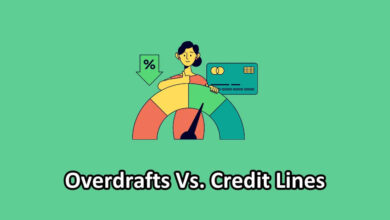In the intricate tapestry of human endeavors, two steadfast companions guide our journey – Accountability and Integrity. Picture this: a world where actions are not mere transactions but threads woven with purpose and responsibility, where trust isn’t fragile but an unshakable bridge connecting individuals, organizations, and leaders.
Accountability and Integrity, often elusive yet indispensable, beckon us to navigate the nuanced terrain of success. Accountability, a multifaceted gem, manifests at the individual, collective, and organizational levels, shaping the very fabric of responsibility.
On the other hand, Integrity, a beacon in the moral fog, radiates from individuals and organizations committed to unwavering ethical principles.
Accountability Vs Integrity (A Comparison)
| Accountability | Integrity |
|---|---|
| Accountability refers to the obligation and responsibility of individuals, organizations, or entities to answer for their actions, decisions, and the outcomes resulting from those actions. | Integrity is the quality of being honest, ethical, and having strong moral principles. It involves the consistent adherence to a set of values and the ability to make decisions and take actions based on those principles. |
| Accountability involves assuming responsibility for one's actions, encompassing a commitment to answer for the consequences of those actions. | Integrity revolves around the steadfast adherence to a set of moral principles, guiding one's decisions and actions. |
| The primary focus of accountability lies in the meticulous delivery of commitments, ensuring that promises made are upheld and responsibilities are met. | Integrity places its central emphasis on ethical behavior, prioritizing actions that align with moral values and principles rather than merely meeting commitments. |
| Accountability extends its scope across various dimensions — it can be individual, collective, or even organizational, encompassing a wide range of responsibilities and obligations. | Integrity is predominantly a personal trait, residing within the individual's character and influencing their decisions and actions on an intrinsic level. |
| Accountability tends to be result-oriented, concentrating on achieving desired outcomes and holding individuals or entities answerable for the results of their endeavors. | Integrity, in its essence, is more concerned with the ethical journey undertaken, placing a premium on the right conduct and ethical choices made throughout the process. |
| Accountability is closely tied to the fulfillment of responsibilities and obligations, establishing a sense of reliability and dependability, though it may not inherently build trust. | Integrity plays a pivotal role in the cultivation of trust, as consistent adherence to moral principles and ethical behavior fosters confidence and reliance on an individual's or entity's character. |
What is Accountability?
Accountability is the cornerstone of any successful individual, organization, or community. At its core, accountability refers to the responsibility one assumes for their actions and decisions. It’s the acknowledgment that our choices have consequences, and being accountable involves owning up to both positive and negative outcomes.
Individual accountability is the personal commitment to deliver on one’s responsibilities. It’s about meeting deadlines, fulfilling tasks, and accepting consequences if things go awry.
Types of Accountability
- Individual Accountability: At the individual level, accountability is about self-discipline and reliability. Individuals who excel in this aspect are those who consistently meet their commitments, take initiative, and learn from their mistakes.
- Collective Accountability: In a team or group setting, collective accountability is vital. It means members hold each other responsible for the group’s success or failure. Collaboration flourishes when everyone understands their role and impact on the collective outcome.
- Organizational Accountability: Organizations must align their actions with their stated values and goals. Leaders play a pivotal role in fostering accountability throughout the hierarchy, ensuring that every member contributes to the overarching mission.
What is Integrity?
Integrity is the bedrock of trust. It involves maintaining a steadfast adherence to moral and ethical principles. In essence, it’s about doing the right thing, even when no one is watching. Integrity builds credibility, and individuals or organizations known for their integrity are often esteemed and trusted.
Examples of Individuals or Organizations Displaying Integrity
- Elon Musk and Tesla: Tesla’s commitment to sustainable energy, even in the face of industry skepticism, showcases organizational integrity. Elon Musk’s transparency about challenges and successes further solidifies this commitment.
- Malala Yousafzai: Malala’s unwavering dedication to advocating for girls’ education, despite facing life-threatening adversity, exemplifies personal integrity. Her actions align with her deeply held values.
Key Differences Between Accountability and Integrity
- Nature of Concept: Accountability is about responsibility for actions, while integrity is about adherence to moral principles.
- Individual vs. Collective: Accountability can be individual, collective, or organizational, while integrity is primarily a personal trait.
- Outcome vs. Behavior: Accountability is often result-oriented, focusing on outcomes. Integrity is more concerned with the ethical journey, emphasizing the right conduct.
- Trust vs. Responsibility: Integrity builds trust, while accountability deals with fulfilling responsibilities and obligations.
- Efficiency vs. Utilization
- Misrepresentation vs. Concealment
- Organizational Development vs. Organizational Transformation
Building Accountability and Integrity
A. Strategies for Fostering Accountability
- Goal-Setting and Tracking: Clearly defined goals, coupled with regular progress tracking, create a framework for individual and collective accountability.
- Effective Communication: Open and transparent communication fosters accountability by ensuring that expectations are clear, and challenges are addressed promptly.
B. Strategies for Nurturing Integrity
- Values Alignment: Encouraging individuals to align their actions with core values strengthens organizational integrity.
- Ethical Decision-Making: Providing frameworks for ethical decision-making empowers individuals to maintain their integrity in challenging situations.
Accountability and Integrity in Leadership
How Accountability and Integrity Contribute to Effective Leadership
Effective leadership is a delicate balance between accountability and integrity. Leaders who embrace accountability set the tone for their teams, showing that they are willing to take responsibility for both successes and failures. This fosters a culture of ownership and continuous improvement.
On the other hand, integrity in leadership builds trust and credibility, essential elements for sustaining long-term success.
Accountability in leadership involves setting clear expectations, providing the necessary resources, and holding team members responsible for their contributions. When leaders model accountability, it creates a ripple effect throughout the organization, promoting a sense of responsibility at all levels.
Integrity in leadership is about leading by example. Leaders with integrity demonstrate consistency between their words and actions, earning the trust of their team. This trust becomes a powerful motivator, fostering a positive work environment where individuals feel secure and inspired to contribute their best.
Case Studies of Leaders Showcasing Accountability and Integrity
Positive Example: Indra Nooyi (Former CEO of PepsiCo)
Indra Nooyi demonstrated remarkable accountability during her tenure. She navigated the company through challenging market shifts, taking responsibility for strategic decisions. Her commitment to sustainability and diversity showcased a leader aligned with both accountability and integrity.
Negative Example: Enron Scandal and Leadership
The Enron scandal serves as a stark example of the catastrophic consequences when leadership lacks both accountability and integrity. Leaders engaged in unethical practices, leading to the company’s downfall. This case underscores the importance of ethical leadership and the severe repercussions when it falters.
Conclusion
In conclusion, accountability and integrity are the pillars of success, whether at the individual, organizational, or leadership level. Accountability ensures that actions align with responsibilities, driving continuous improvement. Integrity, on the other hand, establishes trust and credibility, essential for sustained success.
As we navigate a complex and interconnected world, the interplay between accountability and integrity becomes increasingly critical. Leaders, organizations, and individuals who prioritize these values contribute not only to their own success but also to the betterment of the communities they serve.


